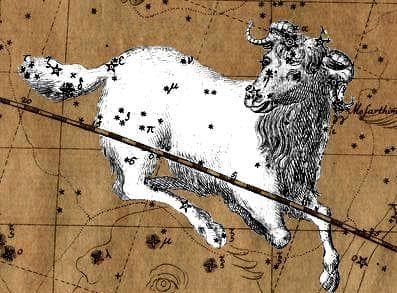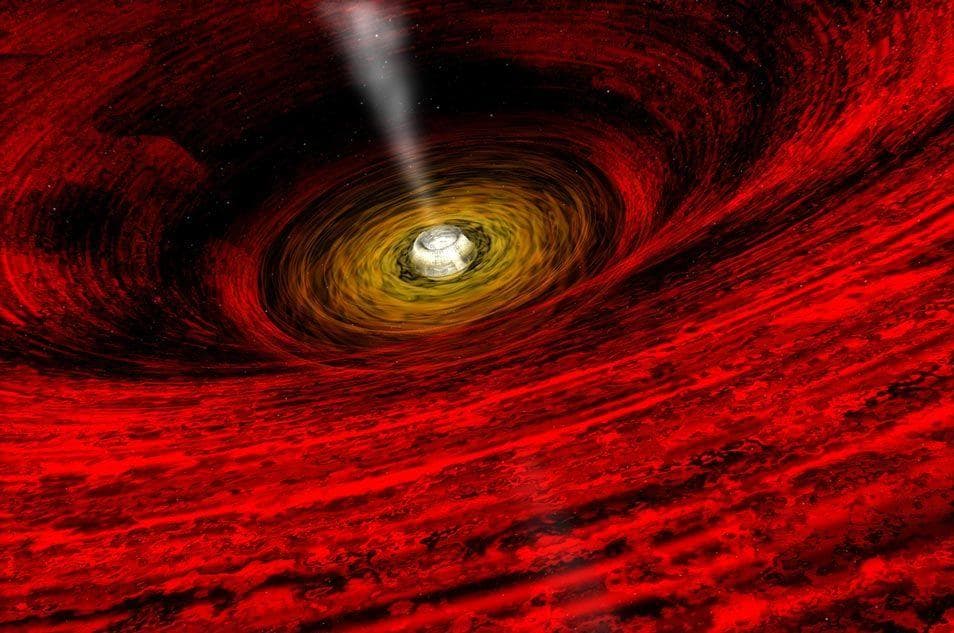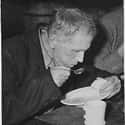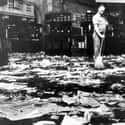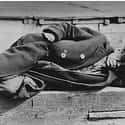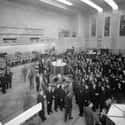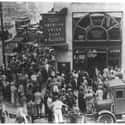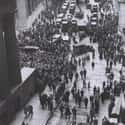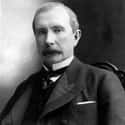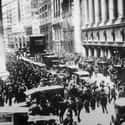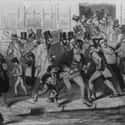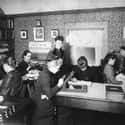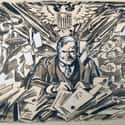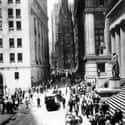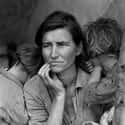-
(#1) A Prominent Financier Shot Himself
The stereotypical depiction of Black Tuesday is stock brokers lining up to jump to their deaths from office buildings in financial despair. Of course, this didn't actually happen. Suicides did spike in the wake of the crash, and some of those people did leap from buildings, but not all of that was tied directly to the crash itself. In reality, the suicide rate had been rising throughout the 1920s; it didn't suddenly explode with the economic crisis, and certainly not in the middle of a single week.
One very direct death caused by Black Tuesday, however, was that of J.J. Riordan. A New York banker, Riordan had lost all of his personal savings in the crash and took his own life shortly thereafter. He didn't jump from a building, either. He shot himself with a pistol.
-
(#2) Wall Street Closed For “Clean Up”
Black Tuesday was really more of a “Black Week” that lasted from Thursday, October 24, 1929, until the Friday of the next week. On that day, Wall Street finally closed its doors and stopped all selling for a few days in order to “clean up.” To be fair, the massive amount of human activity at the Stock Exchange did require quite a bit of actual cleaning up. However, the real reason for the shutdown was to give both employees and investors a chance to chill out. It didn't exactly work out that way.
-
(#3) The Stock Market Lost More Than $14 Billion In A Single Day
Just how big was the “crash” of October 29, 1929? Really big. The value of the stock market had been steadily rising throughout the ‘20s, and it had hit a truly exponential rate of growth at the end of the decade, doubling in value between the end of 1928 and September of 1929. The bubble was due to burst, however, and, when it did, it burst in epic fashion. Between Black Thursday and Black Tuesday, more than $26 billion in stock value was lost. When the damage was tallied the day after Black Tuesday, brokers were astonished to discover that $14 billion had been lost in one day. It would take 25 years for the market to regain the value it had in September of 1929.
-
(#4) Markets Crashed All Around The World
The stock market crash and Great Depression are often thought of as purely American events, but that’s not the case. In fact, in the wake of World War I, the world had become highly dependent on the American economy, and when the US went down, other nations did, too. Black Tuesday precipitated other stock market crashes around the world in a chain of events that helped plunge most of the globe into economic depression. Canada was hit particularly hard, with stock market crashes occurring in Montreal and Toronto shortly after Black Tuesday.
-
(#5) People Rushed To Withdraw Their Savings From Banks
The industry hit hardest and quickest by the events of Black Tuesday was undoubtedly the banking industry. The sudden and unexpected economic uncertainty sent much of the population scrambling to their banks to withdraw their life savings, which was not great for the banks.
To make matters worse, in the years leading up the crash, many banks had been investing their clients’ savings in stocks, sometimes with permission but often unbeknownst to said clients. This meant that much of the money the clients was trying to withdraw was already gone. As the reality of the crash set in, many realized they had lost their complete life savings with no way to get the money back. Meanwhile, countless banks went belly up.
-
(#6) An Immediate, Impromptu Purchasing Freeze Took Effect
It wasn't just the banking industry that was affected by the Stock Market crash; other industries would find themselves feeling the sting of Black Tuesday within short order. Almost immediately, and completely without organization or planning, the people of the United States stopped buying things. It wasn't to protest or to make a point about anything specific; rather, in the wake of the crash, people made the prudent choice to save the money they had left. Unfortunately, the 1920s had seen nationwide spending at an all-time high, and the sharp transition to moderation caused many businesses, both small and large, to close up shop within a few months.
-
(#7) John D. Rockefeller Attempted To Save The Day
John D. Rockefeller was one of America's original "rich guys," part of a family that could be considered financial founding fathers of the country. He and his family did their best to stem the economic bleeding by purchasing massive quantities of various stocks in the days after Black Tuesday, letting the public know they were doing so as a sign of encouragement. Rockefeller hoped to use his financial clout to stabilize the market and inspire public confidence in it, and he boldly promised that shares of his own company, Standard Oil, would not drop. Unfortunately, Rockefeller was not successful in his endeavors.
-
(#8) November 4, 1929: Wall Street Re-Opened With Limited Hours, And It Didn't Help
Wall Street went through a three-day shutdown at the beginning of November in an effort to stop the market from crashing further. When it reopened on November 4, 1929, it did so with limited hours. Trading was only allowed for three hours each day, with the hopes that this would stop the extreme amount of stock selling that was predicted and to keep the market from totally bottoming out. Unfortunately, all the shutdown did was allow the selling frenzy to build up even more, and Wall Street ended up overwhelmed by the volume of business that was attempted in those three hours each day.
-
(#9) November 13, 1929: The Stock Market Finally Bottomed Out
Black Tuesday has gone down in history, but it was far from a one-day event. The major crash of October 29, 1929, was preceded by an entire week of rapid stock selling, and it was followed by outright financial panic. Sales of stocks, and the subsequent tanking of the stock market, clawed back a decade of growth on Wall Street. The stock market finally bottomed out completely on November 13, 1929, more than two weeks after Black Tuesday. By that point, the market had fallen to less than half the value it had in September of 1929.
-
(#10) The Harvard Economic Society And Others Believed That A Depression Was Not Possible
Even after Black Tuesday was over and the staggering amount of financial ruin had been fully tallied, many failed to grasp its true significance. Countless financial experts came out in the wake of the event to boldly state that it wasn't a major problem for concern. The Harvard Economic Society published a statement in early 1930 saying that a large economic depression was “impossible." The head of the Continental Bank of Chicago predicted that the crash would have little to no effect on business. Spoiler alert: he was wrong.
-
(#11) William Randolph Hearst Called Out President Hoover
Herbert Hoover had been President of the United States for less than a year when Black Tuesday hit. It was not a fantastic start to his presidency. To make matters worse, Hoover was a little slow to react, allowing newspaper publisher and Citizen Kane inspiration William Randolph Hearst to publish an “open letter” to Hoover outlining how Hearst would go about fixing the economy. Hoover’s quickest action was convening a conference to create work projects to kickstart employment, but he would ultimately be unsuccessful at preventing his country from falling into the Great Depression.
-
(#12) Traders Never Even Heard The Opening Bell Ring On Black Tuesday
October 28, 1929, AKA "Black Monday," was no picnic on the stock market. In fact, the DOW dropped by 13% over the course of the day, and traders were so beleaguered by the immense amount of shares trading hands that many just slept on the floor of the exchange or in their offices in preparation for expected chaos the next day. Given the dark clouds gathering over the week, the New York Stock Exchange was already abuzz in fevered activity on the morning of Black Tuesday.
It's rumored that there was such a flurry of activity happening on the morning of October 29 that people didn't even hear the opening bell ring. Cries to "SELL!" drowned it out. Three million shares changed hands in the first 30 minutes of the day.
-
(#13) It Didn't Take Long For Crippling Levels Of Unemployment To Sweep The Country
Though the summer of 1929 saw the American economy facing a slow downturn, it wasn't until November of that year that things would fully crash into the conditions that created the Great Depression. While it did take a few months for the dust to settle, it didn't take long for the effects of Black Tuesday to be felt acutely among the American workforce. By 1930, a little less than 10 percent of all Americans couldn't find a job. By 1933, that had more then doubled and nearly 15 million people were unemployed. Homelessness and hunger rose in tandem with this widespread lack of available employment.
New Random Displays Display All By Ranking
About This Tool
On October 29, 1929, everyone in the New York Stock Exchange was caught in a whirlpool of selling stocks. The stock index plummeted by an average of 40 percentage points from its previous high of 363. Thousands of Americans watched their life savings disappear in a few days. This is the darkest day in the history of American securities, and it is the most influential and most serious economic event in the history of the United States, its impact has spread to the entire world.
In the speculative frenzy of the 1920s, the outrageous Florida estate bubble was broken. After this Black Tuesday stock market crash, thousands of people committed suicide by jumping off the building. Since then, the United States and the world have entered an economic depression period. The random tool reminds 13 real things that happened after Black Tuesday.
Our data comes from Ranker, If you want to participate in the ranking of items displayed on this page, please click here.

